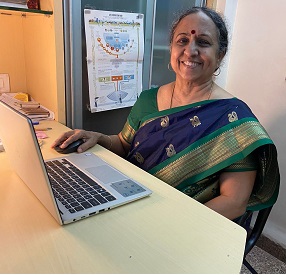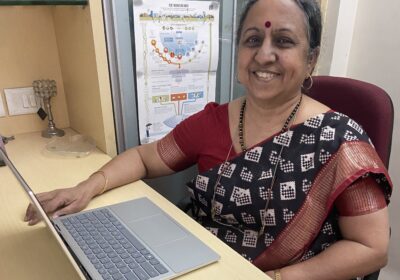Dr GN is a faculty in a medical college. He is registered for QMedCourses and approached me with a request for help. He is studying for an additional degree in an institution in the UK and has to write a systematic review as part of the program. He said that the requirement was that he had to do it all by himself and could not get a team to work with him. While this is unusual as systematic reviews are ideally done by a team (to reduce bias), in this case the objective of solo working is to learn every detail and appreciate the depth of work involved.
Obviously, he needed help for constructing the search strategies. And that is why he approached me. As I have told others with such needs earlier, I asked him to go through specific modules in our PubMed course, construct the search strategy and send it to me. I reviewed it, made notes and then we had a video call with screen sharing, so that I could explain changes that he needed to make. This way one learns by doing. And Dr GN did a great job in improving his strategy.
Next, he needed to do the EMBASE search (and then some more databases). I told him that I did not have access to EMBASE but could broadly guide him. He shared his login details so that I could do it better. (I of course assured him that I would use it ONLY to help him out). I did a session where I explained the commands in EMBASE. He will now come back with the EMBASE strategy and we will repeat the “reviewing / corrections” process for EMBASE and then for others.
Dr GN understood some of the complexities involved. He is sharp. What is important is, that he now knows how to “communicate” with an information specialist. He now knows what an information specialist can do. He is aware that as a busy physician he cannot keep up with new databases that appear, evolution of features and more in the existing ones, and overall – all changes that may happen in information resources. He appreciates the need for a good information specialist in medical research and practice.
In the last few years, in India, we have institutions where faculty and students have access to a large number of expensive databases. As far as I am aware, this is true of AIIMS Delhi and PGI Chandigarh. There may be more institutions. But – has the necessary training been imparted? The answer is no! The database vendors may have done a demonstration – but it is exactly that. A demo session usually does not teach the theory. It only explains “you can do ….”. The session is done in about an hour and then the users are left to fend for themselves.
Is the cost of spending on access justified when it is not supplemented with the needed training and support? When there is no training, users get daunted by the instructions on the site. They get daunted by the large results they often retrieve. Or are sometimes perplexed with too few or no results. They move into phases of procrastination – “I will tackle this later”, or – frustration – “Oh – I need to get this done, but I have no clue how to go about it”, and then wasted hours (could have gone into the much needed rest, or other productive work). Worst of all this could lead to an inadequate review – thanks to an inadequate search. Which means incorrect research results. Not to mention public money wasted.
I attended an online meeting of information specialists last night, where we discussed some aspects of Campbell Systematic Reviews. I learn a lot from such meetings. There were information specialists from several countries.
One of them said “A systematic review is as good as the search strategies that were done to find studies”. I agree.
We need to aim to produce great systematic reviews that have been done with great search strategies. We have subject experts. In fact there is a surge in people wanting to write systematic reviews. We need the surge in the numbers learning how to search right! We urgently need lots more information specialists who are given the right roles and salaries. Will India wake up to the need for structured training in literature searching? Will we wake up to the need for creating lots of information specialists? I hope we do. Or else we live with questionable research results. Questionable evidence. And questionable healthcare services.




